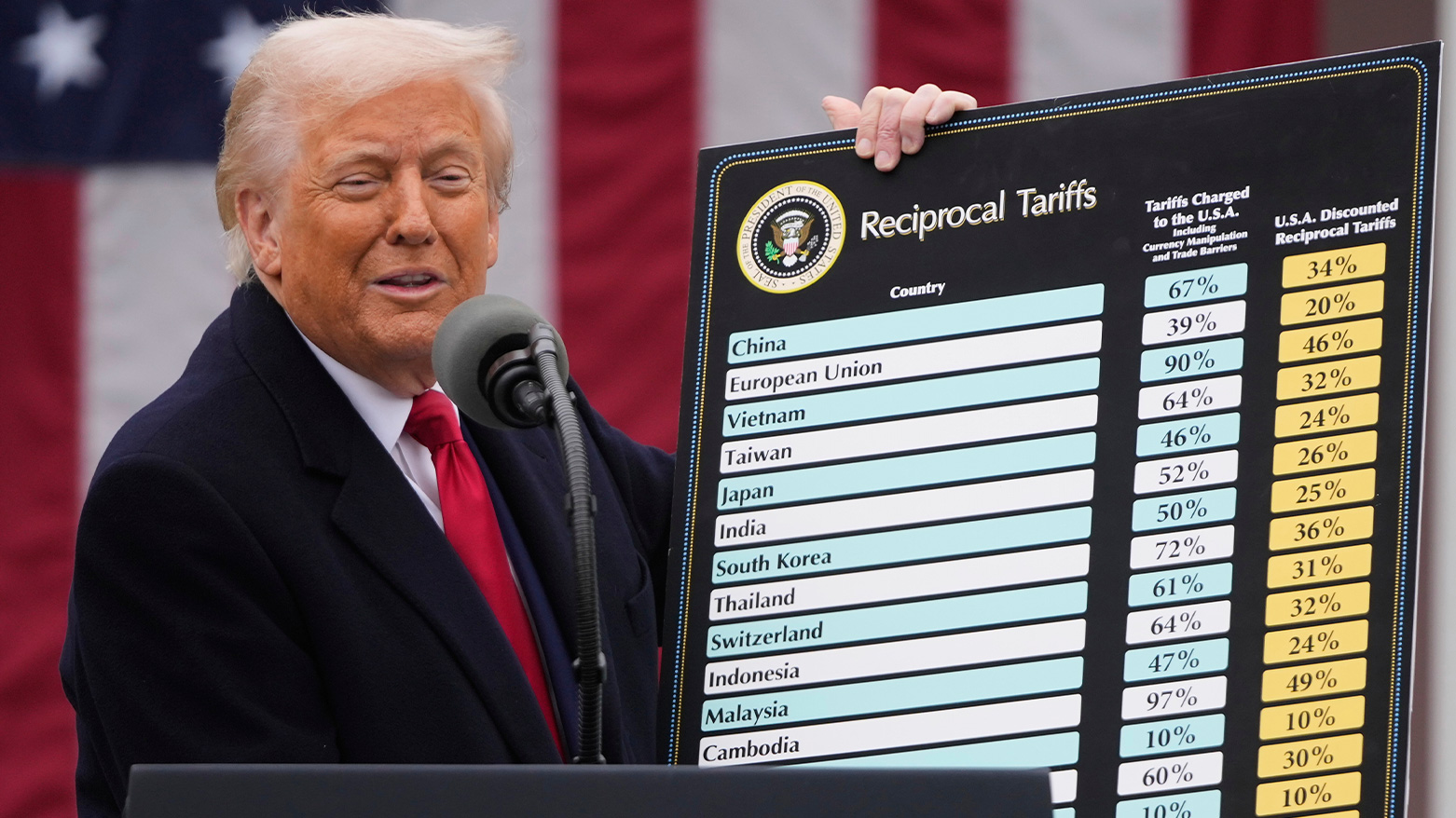Iraq Responds to U.S. Tariffs with Four-Point Plan
The measures, which include expanded trade dialogue and financial sector cooperation with the United States, underscore Baghdad’s efforts to assert its economic sovereignty amid mounting international unease over Washington’s new trade policy.

By Kamaran Aziz
ERBIL (Kurdistan24) – In a decisive response to a sweeping wave of global tariffs imposed by U.S. President Donald Trump, the Iraqi Council of Ministers, led by Prime Minister Mohammed Shia al-Sudani, convened on Saturday to enact a four-point plan aimed at protecting Iraq’s trade and financial interests.
The measures, which include expanded trade dialogue and financial sector cooperation with the United States, underscore Baghdad’s efforts to assert its economic sovereignty amid mounting international unease over Washington’s new trade policy.
Trump’s move, announced on Wednesday, has been dubbed a “declaration of economic independence” by the White House. The policy imposes a 10 percent baseline tariff on nearly all global imports to the United States, with much higher rates for countries labeled as “worst offenders.”
China faces a punishing 54 percent combined tariff, while the European Union and Japan have been hit with 20 percent and 24 percent levies, respectively. Iraq remains subject to a 39 percent tariff rate, already in place prior to the latest round of hikes.
The international reaction has been swift and vocal. China denounced the tariffs as a violation of international trade rules and vowed retaliation. The European Union warned of “a major blow to the world economy,” and countries from Brazil to Australia to South Korea expressed outrage, with some preparing retaliatory measures. Even close allies like Canada and the UK voiced dismay, emphasizing the damaging implications for global supply chains and economic recovery.
In response, Baghdad approved four strategic measures to manage the potential fallout. The first centers on enhancing mutual trade relations with the United States by facilitating American market access, supporting Iraqi trade institutions, and promoting direct engagement between corresponding sectors in both countries.
The second measure seeks to expand banking and financial ties to bolster mutual economic integration.
The third element includes the formation of a high-level negotiation team tasked with revisiting the terms of bilateral trade and ensuring a more balanced framework that protects Iraq’s economic interests.
The fourth involves coordinated diplomatic efforts led by the Ministries of Foreign Affairs, Finance, and Trade, along with other institutions, to monitor developments in global financial markets and maintain steady dialogue with American counterparts.
However, economists in Iraq remain divided on the real-world implications.
Dr. Qasim Salam, speaking to Kurdistan24, said the tariffs “may not have a significant impact” given Iraq’s limited non-oil exports to the U.S. “If tariffs are imposed on oil exports to the United States, then American companies will bear the cost,” he added.
However, others warn of ripple effects, especially in markets tied to U.S. demand. Analyst Alaa Hussein pointed out that “Iraq retains part of its oil revenue in U.S. banks,” making it susceptible to shifts in American fiscal policy.
He also noted that the American automobile market—now affected by 25 percent tariffs on imported vehicles—could become a pressure point.
The broader context of the Trump administration’s economic nationalism is not lost on observers. Some experts view the high tariffs on Iraq as politically motivated, citing Baghdad’s perceived alignment with Tehran. The administration has explicitly stated that nations viewed as “treating the U.S. badly” will be penalized with tailored tariffs based on their trade barriers, subsidies, and diplomatic stances.
Trump’s tariff regime is also disrupting previously routine global trade mechanisms.
New restrictions include a crackdown on Chinese e-commerce shipments, steep auto tariffs, and expanded levies on steel, aluminum, and goods from countries importing Venezuelan oil.
The global response has ranged from legal threats at the World Trade Organization to emergency trade summits in Brussels, Tokyo, and Seoul.
Amid this volatility, Iraq is attempting to thread a difficult needle—maintaining strategic relations with Washington while protecting its fragile economy. Saturday’s cabinet session reflects Baghdad’s intent to stay ahead of the curve and avoid being swept into a broader trade war that could destabilize already delicate regional balances.